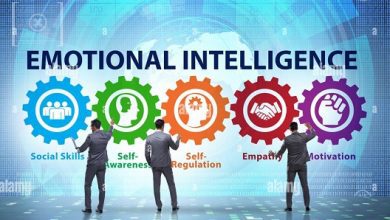Difference between cognition and perception
Cognition
Cognition refers to the mental process of realizing, learning, and understanding things. In other words, it involves gaining knowledge and understanding. Cognition includes many aspects of higher brain functions and processes, such as memory, attention, knowledge formation, judgment and evaluation, reasoning, problem-solving and decision making, understanding, and reproduction of language. In addition, cognitive processes use existing knowledge and generate new knowledge. Cognition also includes forming beliefs, making decisions, and solving problems based on pre-existing information. Difference between cognition and perception
Cognition is studied in various disciplines such as psychology, anthropology, philosophy, and neurology. Cognitive psychology focuses on how information processing affects behavior and the role of various mental processes in the acquisition of knowledge.
In addition, cognitive processes are methods that are used to gain new knowledge and make decisions based on this knowledge. Attention, memory, perception are different cognitive processes that play different roles in cognition. Cognitive processes can happen consciously or unconsciously, naturally or artificially, but they happen quickly. They are always at work, even without our knowledge.
Perception
Perception is the ability to collect, process, and understands the information that our senses receive. In this process, our brain identifies and organizes the information it receives from nerve impulses and then begins to interpret them. In other words, after our five senses receive several stimuli that are sent to our brain by nerve impulses, our brain interprets these impulses as a visual image, sound, taste, smell, touch, or pain.
Since the interpretation of this feeling occurs as a result of experience, the result of perception differs depending on each person. The recipient’s experience, learning, memory, anticipation, and attention can also shape perception. Moreover, perception is not just a spontaneous process, but a series of processes.
Perception includes both bottom-up and top-down processing. It involves bottom-up processing, as perception is based on our sensory input. On the other hand, it also includes a top-down approach, as our existing knowledge and experience influence how we interpret these sensations.
Difference between Cognition and Perception
1-Cognition is the mental process of acquiring knowledge and understanding through thought, experience, and feeling, and perception is the ability to see, hear, or be aware of something through the senses.
2-Cognition includes cognitive processes such as memory, attention, perception, reasoning, and language, while
3-perception uses the five senses: sight, hearing, touch, taste, and smell.
4-Perception is the process of obtaining new information, and cognition uses already existing information.
5-Perception is a process that allows us to use our intuition to understand information around us through organization, identification, and interpretation. Difference between cognition and perception
6-The main difference is that although cognition involves many skills and processes, Perception can be defined as one of those cognitive skills or abilities that help in improving the quality of cognitive abilities.
Difference between cognition and perception
